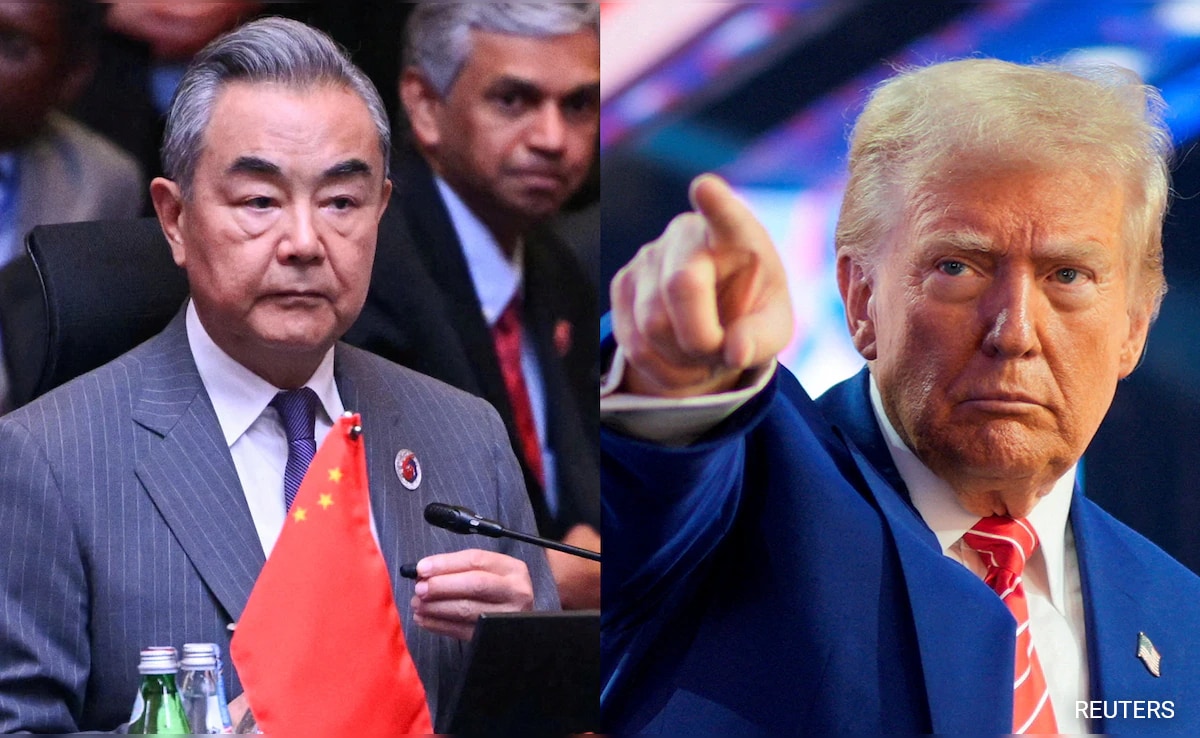Russian officials see a time frame of just weeks for Biden to agree to demands that have long been ruled out by NATO, including Russia vetoing the security decisions of Ukraine or other nations in the region.
The Biden-Putin talks come with fears Putin may invade Ukraine, amid a Russian military buildup near Ukraineâs border for the second time this year. Some analysts warn that Russiaâs insistence that a complex security deal be negotiated in such a short time could be a pretext for military action.
In their previous Dec. 7 video conference Biden warned Putin of tough new sanctions if Russia escalates action against Ukraine, a threat the Kremlin has shrugged off, saying it is used to Western sanctions.
Putin last week made it clear he would not wait long for the written security guarantees he demands, saying he was not interested in negotiations, only results.
âIt is you who must give us guarantees, and you must do it immediately, right now,â he told a Western journalist last week at his annual news conference, when asked if he would rule out invading Ukraine. âIt is the United States that has come to our home with its missiles and is already standing at our doorstep.â
Biden plans to tell Putin Thursday that while the United States is prepared to proceed diplomatically, it will respond to further incursions with economic sanctions, NATO reinforcement and assistance to Ukrainian efforts to defend itself, according to a senior administration official, speaking to reporters anonymously under ground rules set by the White House.
U.S. officials hope that talks between the leaders may help cool the crisis ahead of talks planned Jan. 10 between U.S. and Russian officials, likely in Geneva.
âI think both leaders believe that there is genuine value in direct leader-to-leader engagement, that we are in a moment of crisis and have been for some weeks now given the Russian buildup,â the senior administration official said.
Bidenâs national security adviser, Jake Sullivan, said last week that the United States had its own list of security concerns about Russian actions to bring to the Jan. 10 talks.
An unclassified U.S. intelligence analysis revealed by The Washington Post earlier this month found that Russia was preparing to move as many as 175,000 forces in preparation for an invasion, though the White House has said Putin hasnât made a decision yet. U.S. officials and military analysts have predicted that if Putin decides to proceed, the offensive could take place in late January or February.
Putin blames Western aggression for the rising military tension over Ukraine and last week threatened to respond with âmilitary-technical measuresâ if his security demands were not met, without indicating what the measures would be.
On Sunday, Kremlin spokesman Dmitry Peskov explicitly linked Russiaâs test of a multiple firing of Tsirkon hypersonic missiles on Christmas Eve with Moscowâs demands for security guarantees, saying Russia hoped that its demands would âthus become more compelling.â He was interviewed on state television on the program, âPutin.â
Putin, who has often boasted that Russia leads the world in hypersonic missile technology, said the first Tsirkon missile salvo test was âsuccessful, impeccable.â He called it âa major event in the life of our country and a significant step in raising Russiaâs security.â
In recent weeks Putin has aired grievances over NATOâs expansion into Eastern Europe after the fall of the USSR 30 years ago, and his belief that part of Ukraineâs territory historically belongs to Russia.
Putin has marked out Ukraine membership of NATO as a âred lineâ that Russia will not accept. In a long essay published in the summer, he made it clear he sees Ukraine as part of Moscowâs sphere of influence, writing that Ukraine could only be truly sovereign in partnership with Russia.
Other officials have been increasingly bellicose: earlier this month deputy foreign minister Sergei Ryabkov warned that the tensions over Ukraine could turn into a Cuban missile crisis scenario â the U.S.-Soviet showdown in 1962 over Moscowâs construction of missile bases in Cuba that brought the world to the brink of nuclear war.
Nikolai Patrushev, Russiaâs security council chief, called Ukraine a âprotectorateâ in a newspaper interview in November, adding an ominous note: âThereâs potential in Ukraine for an outburst of tensions so strong that millions of Ukrainians will flee to seek refuge in other places.â
John Wagner, Sean Sullivan, Meryl Kornfield and Karoun Demirjian contributed to this report.
Read more:
.png)











 English (United States) ·
English (United States) ·  Turkish (Turkey) ·
Turkish (Turkey) ·